Beijing’s grand seduction of ruling elites in the Pacific, Southeast Asia
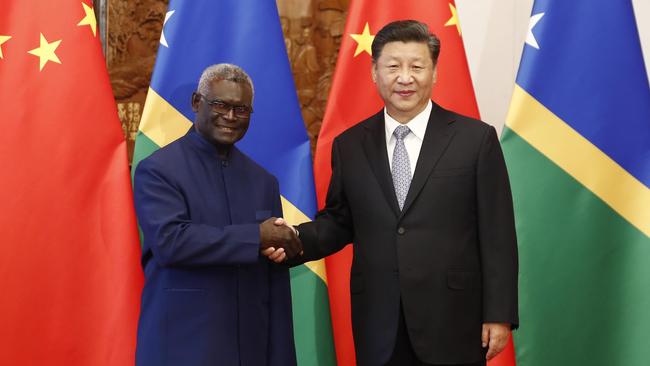
The prime minister’s apparent failure was revelations that Solomon Islands had concluded a comprehensive security agreement with China. The details of the China-Solomons deal were still murky. But it was alleged that an increased role for Chinese police and security forces in the island nation invariably would lead to the establishment of a Chinese naval base in the Solomons.
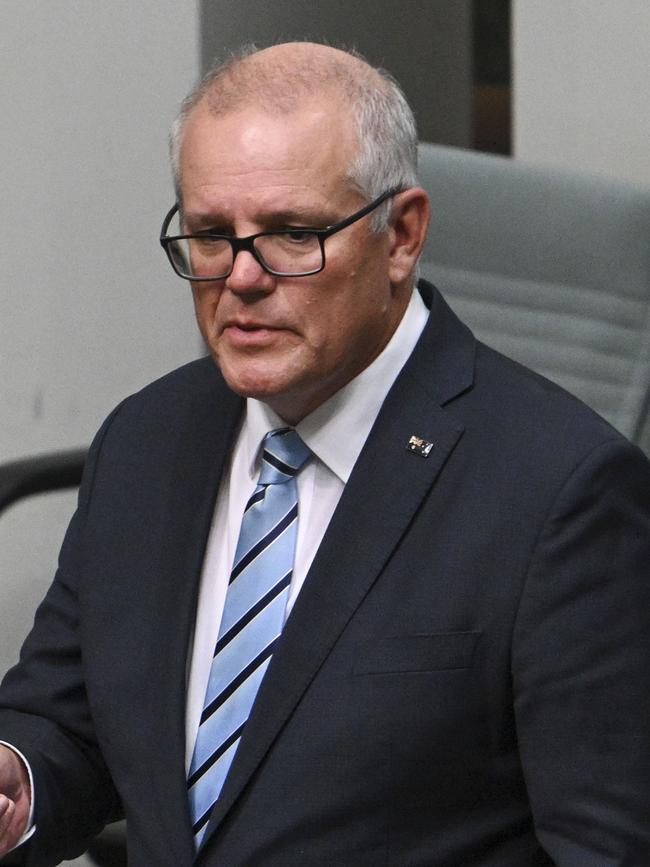
For Labor, such revelations proved to be a powerful political weapon against a Morrison government that had staked its international credentials on its ability to help keep in check an axis of revisionist authoritarian powers led by China. The prospect that Beijing could have a military base less than 2000km from Australia’s coastline led Anthony Albanese to accuse the Morrison government of being “asleep at the wheel”. That this issue contributed to Morrison losing the election is probably true.
Was the Coalition government found wanting or are there more sinister and larger forces at play beyond Australian strategic negligence?
On Labor winning government, Penny Wong was quickly dispatched to the Pacific, including Solomon Islands. As with ministers in the Morrison government, Solomons Prime Minister Manasseh Sogavare received the new Australian Foreign Minister warmly. In July 2022, Sogavare assured Albanese that Australia remained his country’s “security partner of choice” – a flattering term he also offered to Morrison.
Yet Sogavare remains close to Beijing and the latter is playing an ever more important and extensive policing and security role in the Solomons.
In September last year, Beijing offered to help Papua New Guinea with the latter’s internal policing challenges. China is seeking to capture the hearts, minds or simply the hip pockets of ruling elites in the Pacific and Southeast Asia. It has achieved significant success. If Australia and countries such as Japan fail to counter the elite capture strategies of China, then the democracies will lose the standing and influence they have enjoyed in much of the region since after World War II.
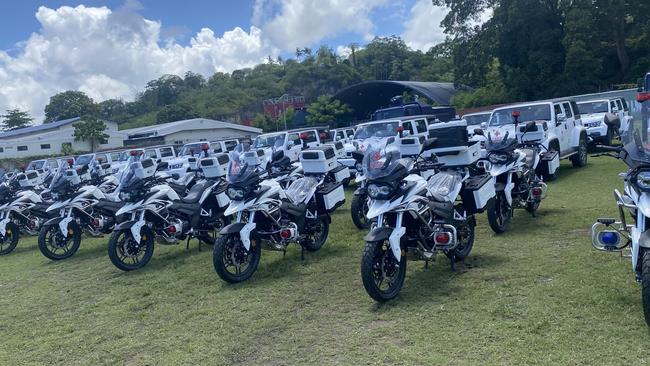
Democratic decline
The Albanese government has not adopted the Coalition’s framing of the greatest challenge to Australia being an axis of authoritarian states causing strategic problems and instability for the democracies in the region. This may be a nod to our Southeast Asian neighbours that are similarly uncomfortable with the focus on political systems. But the facts are undeniable.
Democracy is in retreat. In its annual report for 2024, Freedom House found global freedom declined for the 18th consecutive year: political rights and civil liberties went backwards in 52 countries and improved in only 21, affecting one-fifth of the world’s population.
Among the leading causes of this in the past year was the manipulation of elections by incumbent governments undercutting opposition parties and altering election results, military coups, electoral violence, and the denial of civil and political rights in disputed territories. Beyond this, widespread disinformation has become a feature of electoral campaigns and public discourse, governments increasingly are using digital means to suppress free expression, while embedded corruption continues to undermine confidence in democratic systems.
It is no coincidence that democratic decline and growing authoritarianism in the world are occurring at a time of intensifying geostrategic competition between the US (and its allies and partners), on the one hand, and China and Russia on the other. This competition is a comprehensive one, encompassing technology, trade, investment, climate change, green transformation, defence and security. It goes beyond the material, however, and includes direct contestation over ideas – over the rules that govern behaviour between states, the principles underpinning global institutions, standard setting for investment, trade and digital governance, as well reaching into the internal economic and political systems of states.
While in the past the US was able to place human rights conditions on its diplomatic and trade relations with other states, it now has to consider the geostrategic blowback of being too heavy-handed.
The rise of autocratic China, and its narratives, policies and practices, is not the only cause of democratic backsliding in the Indo-Pacific but is a significant factor. Under Xi Jinping, China is directly challenging the narrative that liberal democracy is the only and most effective path to prosperity for developing countries.
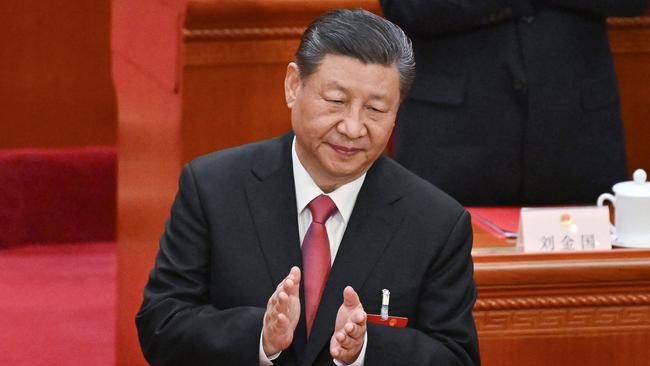
In his speech to the 19th Congress of the Chinese Communist Party in October 2017, Xi declared that China’s political model of “socialism with Chinese characteristics” was “blazing a new trail for other developing countries to achieve modernisation” based on “Chinese wisdom and a Chinese approach to solving the problems of mankind”.
The underlying message is that China’s authoritarian capitalist model can provide rapid economic development and maintain social order without any need for economic, social and political freedoms. Since then, Xi has encapsulated his vision for Chinese normative leadership via the Global Civilisation Initiative, which denies the universality of liberal democratic norms.
China’s promotion of the virtues of authoritarian capitalism finds fertile ground in Southeast Asia where the overwhelming majority of countries are developing countries where popular commitment to democratic systems and liberal values remains shallow.
An illuminating 2017 Pew Survey of citizens from The Philippines, Vietnam and Indonesia found only 15 per cent, 12 per cent and 8 per cent of respondents respectively were “committed democrats” who favoured electoral democracy under any circumstances. Most – 67 per cent, 75 per cent and 79 per cent respectively – had a positive view of electoral democracy but would consider less democratic governance by experts, a strong leader or the military under various circumstances.
A more recent survey conducted last year suggests more than half of respondents from Singapore and Malaysia prefer a “leader with a strong hand” to a democratic form of government (and presumably a democratically elected leader). Such surveys demonstrate that populations take an instrumentalist view of the virtues of democracy; that is, they judge democracy according to whether it can deliver democratic development. Rather than blaming the party in power for inadequate economic outcomes, they blame the democratic system itself as failing.
And in many cases regular elections alone cannot overcome sub-optimal developmental outcomes resulting from poor separation of powers, inadequate checks on governmental power, limited civil society participation, restrictions on freedom of the press, corruption and the divvying up of power by elites.
Pacific elite capture
Ostensibly, the situation might appear rosier in the Pacific. Unlike in Southeast Asia, which has a mixture of democracies, autocracies and systems between these two, the Pacific Island nations are all democracies – although some like Fiji do have occasional military coups.
Democracies such as Australia, New Zealand, the US and Japan also have a long history of assisting many of these countries in terms of aid, economic development, civil society, and domestic security and military modernisation.
Australia, for example, was the largest development partner of the Pacific providing almost 40 per cent of the total official development finance or $US17bn between 2008 and 2021. China begins from a low base and cannot match many of the contributions made by Australia, the US and its allies across many decades. But it is pursuing a different strategy. This is where Beijing’s elite capture approach comes into its own.
How, then, has Beijing been able to create this outsized level of influence at Australia’s expense? It has done so by using a strategy of elite capture, which means directly targeting the personal and political interests of a small number of Pacific elites in positions of power.
According to a recent Lowy Institute analysis, China has shifted from a “loud and brash” to a “small and beautiful” and “politically targeted” approach to aid. This means directly rewarding those politicians and countries that officially recognise the PRC rather than Taiwan.
In Solomon Islands, China has financed the $US53m 2023 Pacific Games stadium and other sports facilities, as well as committing loan funds to build 161 mobile communication towers supplied by Huawei. There are also numerous reported instances of Chinese aid being used to make direct and indirect payments to governing elites in return for business contracts, access to natural resources or support for Beijing’s political preferences.
In 2018, a large-scale example was the reported use of Chinese aid to deliver a $1m bribe to Sir Michael Somare, the former prime minister of PNG.
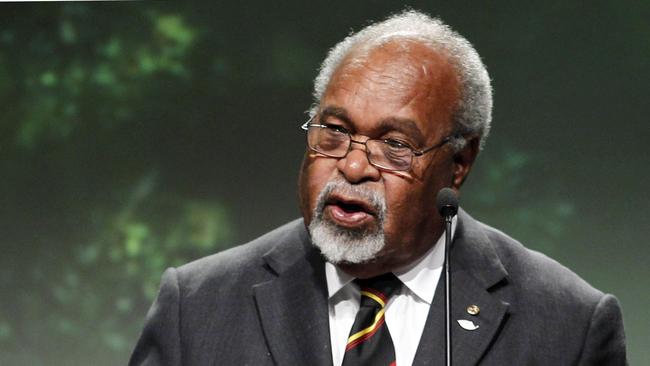
According to PNG authorities and Singaporean anti-corruption investigators, these funds came from a $4.7m slush fund established by Chinese phone company ZTE in 2010 to ensure it was awarded a contract in PNG.
Before the signing of the Solomons-China security pact in 2022, credible media reports suggested Sogavare used a Chinese-supplied slush fund to pay $44,000 each to several MPs to avert a likely no-confidence vote in parliament. This vote of no-confidence arose after violent riots in the capital by protesters dissatisfied with his government and its decision to switch recognition from Taiwan to China.
The point is that the decline in Australian influence in the Pacific has come about largely through Chinese elite capture and the subversion of democratic processes. Beijing is actively using economic resources to achieve its interests in ways that create opportunities for corruption, subvert accountability processes and allow ruling regimes to make decisions contrary to the will and long-term national interest of their citizens.
Business as usual fails
Expending ever larger amounts of Australian aid in the Pacific is not sufficient to arrest and counter Chinese elite capture. Neither will more aid dollars fix the causes of democratic backsliding, and the erosion of good governance standards and practices that is needed to achieve economic development and poverty alleviation that is enduring.
Traditionally, the delivery of aid is seen as an apolitical activity. In the contemporary geopolitical setting, this is a complacent and dangerous luxury.
The Albanese government needs to accept that development assistance is being used by countries such as China to change governance institutions and norms in recipient countries.
In addition to maintaining high ethical and technical standards, Australian development assistance also needs to be deployed for the purposes of influencing elite behaviour, developing transparent and accountable governance institutions, and expanding civil society and free media participation in Southeast Asia and the Pacific. In addition to established humanitarian and civil society purposes, strategies and specific projects should be selected and designed to include this geopolitical and normative purpose.
Australia is providing significant support for the development of good governance practices in the Pacific and Southeast Asia. This is mostly directed towards “state-building” efforts, which is to say building the capacity of government officials to improve technical and policymaking capabilities and improved service delivery for the purposes of achieving economic development.
These are worthy programs. However, greater support for the development of democratic practices and a culture of transparency and accountability in society should be prioritised within the aid program to counter opportunities for elite capture and prevent the degradation of democratic institutions and practices. Australia should increase the weighting of aid for support to local civil society organisations with a view to building their capacity to advocate for their constituencies and become active in the political process.
Further, the Albanese government should provide greater financial assistance to directly support training for the operation of independent media organisations in the Pacific. Chinese state-media companies have begun to operate in the Pacific and there is evidence of Chinese influence over independent media companies being achieved with relatively small outlays. Direct support for independent media would counter these activities and ensure it can play a role in providing factual reporting and holding decision-makers to account.
These are just some of the recommendations in a report released by the US Studies Centre, Aligning Values and Interests: Japanese and Australian Democracy Support in Southeast Asia and the Pacific.
It was once said that the CCP external objective was merely to seek security for its authoritarian institutions and approach. The CCP has become much more ambitious than that. It wants to promote and entrench some of its values and practices in other countries to extend its geopolitical advantage and influence at the expense of countries such as Australia. We can use the tools at our disposal such as aid and other forms of statecraft ethically – but with a geopolitical purpose – or we can excuse ourselves from the contest only to find ourselves eventually in a far more dangerous neighbourhood than we once thought possible.
Lavina Lee is a senior lecturer in the department of security studies and criminology at Macquarie University and a non-resident senior fellow at the US Studies Centre at the University of Sydney. She is lead author and editor of Aligning Values and Interests: Japanese and Australian Democracy Support in Southeast Asia and the Pacific, which was funded by the Japan Foundation and jointly published with the US Studies Centre on April 6.


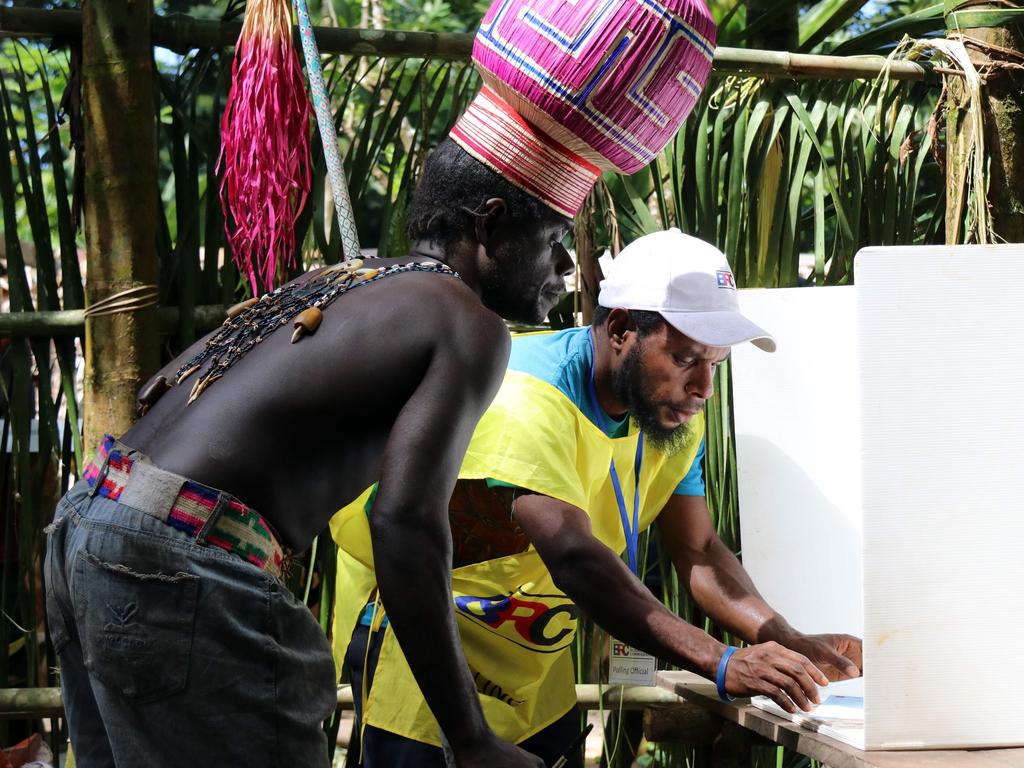
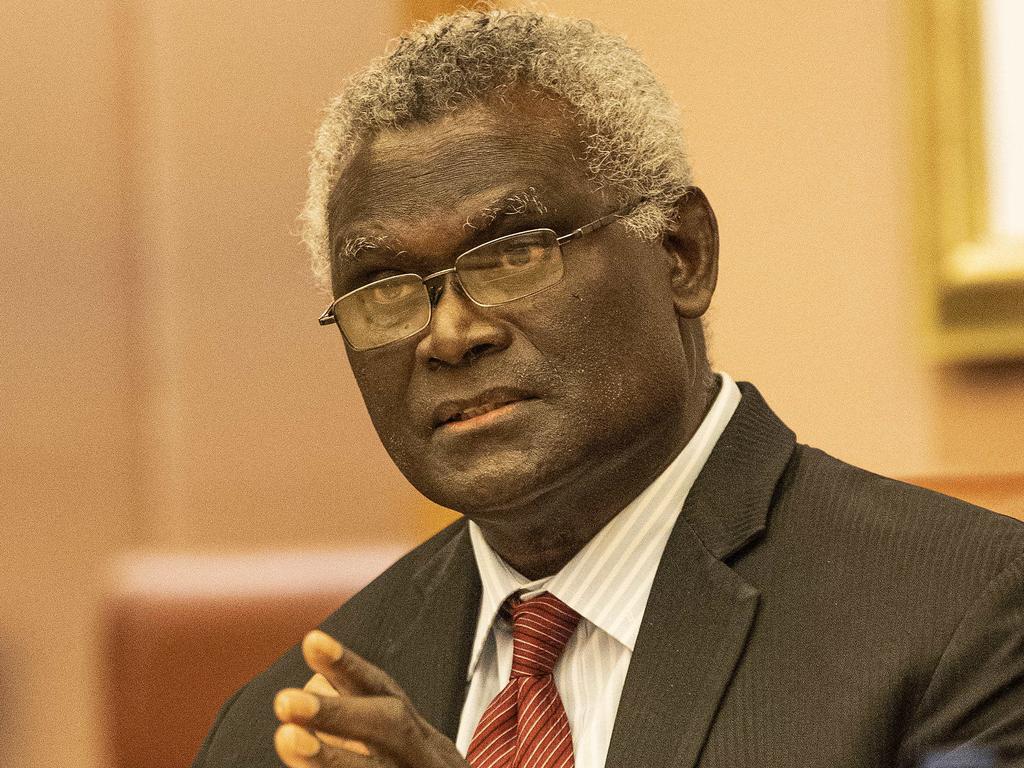
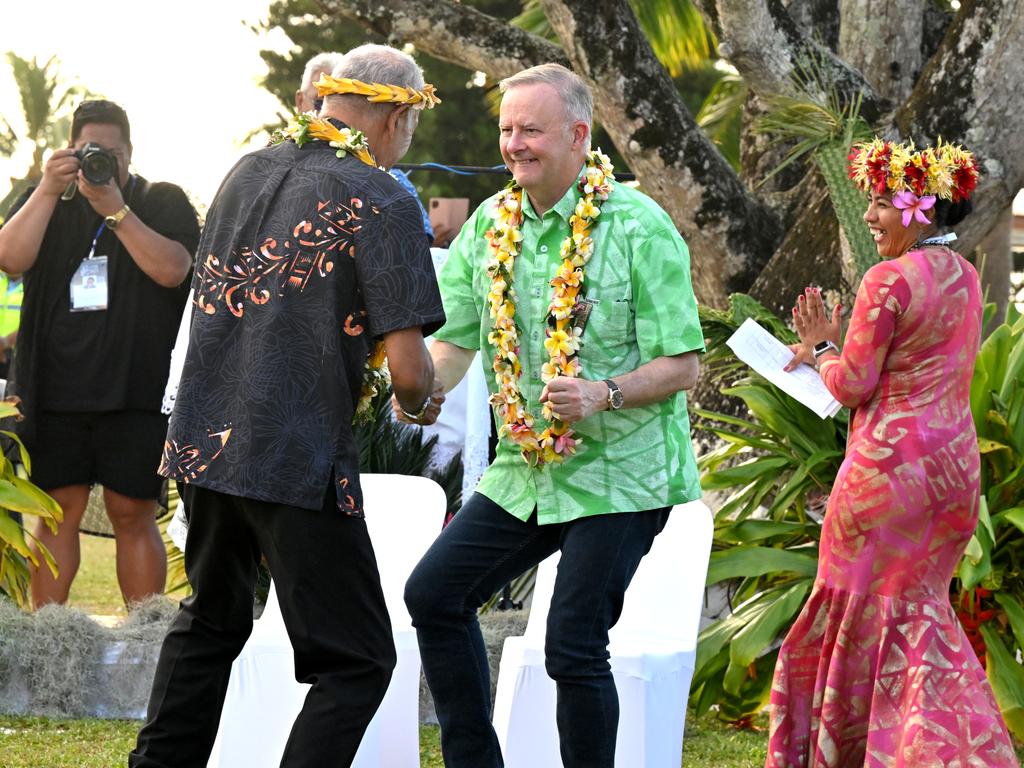


One month before the federal election in May 2022, Scott Morrison was forced to fend off accusations by the Labor opposition that he was responsible for “the worst Australian foreign policy failure” in the Pacific since World War II.